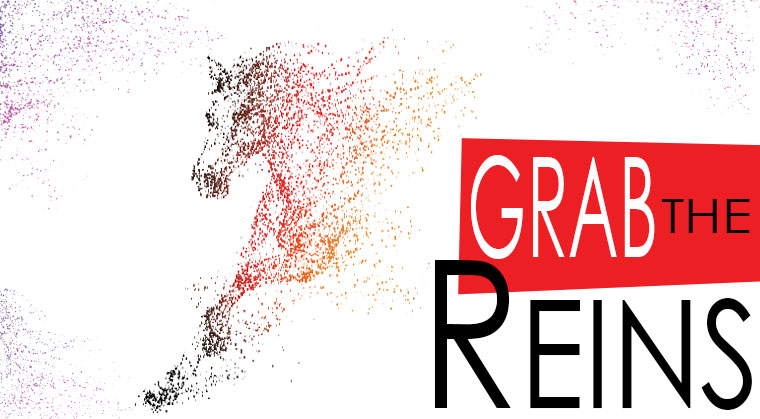Grab the Reins: Chapter 32


N o matter how many times I leave the teaching profession I always seem to find myself back in front of a classroom.
I was embarking on yet another Retorno adventure — teaching the very same Twelve Step Methodology course I’d taken a few years ago as part of my training. For 22 weeks I’d be teaching a group of Bais Yaakov educators — principals teachers and guidance counselors.
The first half of every class was given by a different lecturer each an expert in his or her own field on topics ranging from substance-abuse prevention among teenage girls to the difference between yetzer hara and addiction. My role during the second half of each class was to teach the 12 steps both in theory and in practice.
Our basic texts were the Twelve Steps of Alcoholics Anonymous and selections from a book written by one of Retorno’s former counselors focusing on what characterizes addictive thinking and behaviors. The selections — all together eight pages for the entire course — were important reference material but they and the printed steps were merely a starting point. True understanding came from anecdotes and examples questions and answers… and of course diving in.
After a brief introduction we sat in a large circle and participated in a genuine 12-step meeting. I must admit it was plain old fun telling this population whose default position was seated before a desk with an open book and a pen in hand to put everything away push their desks to the side form a circle with their chairs and just experience.
During the first lesson one of the women — I hadn’t yet learned names — raised her hand. “Why do we need to sit in a circle like this? Why do we need a group at all? Why can’t we just learn from the texts?”
“What’s your name please?”
“Bracha.”
Resisting the urge to open with “Ohavim ” I said “Bracha why are you here?”
“I want to be able to tell if one of my girls is in trouble. What to look out for.”
I turned to the class. “And the rest of you?”
“What to do if she starts acting out.”
“How to prevent her from acting out.”
“How do I get her to trust me?”
I said “So you want to be able to identify when someone’s in danger and be a motivating influence to help her grow in a positive way.”
“Yes ” Bracha said.
“In other words ” I said “you want be an agent of change. A catalyst for growth.”
Nods all around.
“In order to guide someone through a process of self-awareness you have to become self-aware. In order to be a catalyst for growth you have to be growing.”
I let that sink in then held up the pages I’d copied from Retorno’s guidebook. “These pages can tell you how an addict thinks and feels but only by finding yourself in these pages can you get a real feel for what makes an addict tick.” (Excerpted from Family First Issue 568)
Oops! We could not locate your form.


